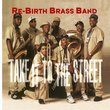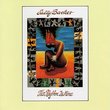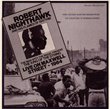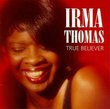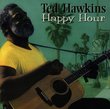| All Artists: Brahms, Busch String Quartet Title: Horn Trio Opus 40 Members Wishing: 1 Total Copies: 0 Label: Testament UK Release Date: 4/5/1994 Genre: Classical Styles: Chamber Music, Historical Periods, Modern, 20th, & 21st Century Number of Discs: 1 SwapaCD Credits: 1 UPCs: 713746003524, 723721398026, 749677100124 |
Search - Brahms, Busch String Quartet :: Horn Trio Opus 40
 | Brahms, Busch String Quartet Horn Trio Opus 40 Genre: Classical
|
CD DetailsSimilar CDs
|
CD ReviewsTHEY DON'T COME LIKE THIS ANY MORE DAVID BRYSON | Glossop Derbyshire England | 02/23/2005 (5 out of 5 stars) "I see that these performances are also available under another label that may be easier to find. However this is the disc that I've got, so this is the disc I'd better attach my review to.
The Busch Quartet have long been familiar to me from their performances of the late Beethoven quartets and the works with piano that they recorded with Serkin. In their time they were modernisers and reformers, taking a cleaner, stricter and more disciplined approach to the standard classics. Things have of course moved on since then (these performances are from the 1930's), and you would know that this is not a contemporary reading of the clarinet quintet in two ways - speeds are in general brisker than we are now used to, and there is actually more flexibility in the rhythm than we usually hear these days. The latter makes a striking impression right away with Kell's first entry and the string players follow suit in the first and last movements. In the variations this gives me no problem at all, indeed the Busches seem to me more adept in their rhythmic inflexions than, say, the Amadeus do. Probably I have no difficulty with these in the first movement either: what will take more getting used to is the fast basic pulse. They may be right about that. The movement is marked as an unqualified allegro, however elegiac we may think its general mood, and where real expressiveness is demanded near the end of the development they ease the tempo markedly. Limitations to recording techniques in 1937 may have led them to leave out the repeat. I am not in general much bothered about this feature, but in this particular movement I always want the repeat made because of the subtlety with which it's done. In passing I might note that what the liner-note says about the development leading into the recapitulation is simply wrong - the recapitulation starts perfectly straightforwardly from the beginning. The third movement is an outright winner. After the opening andantino, where Kell's tone, unfashionably expressive in his day until he received the public endorsement of no less than Furtwaengler, is really exquisite, the tempo in the `presto' makes sense of that indication for once. A very fast speed would be out of the question, but I also don't believe that when Brahms said `presto' he meant `allegro moderato', which is what I'm normally treated to nowadays. In the last movement there is again more `moto' than I'm used to, but I adapted easily enough to this. I was pleased to see that the adagio took over 12 minutes - the slower the better as far as I'm concerned. Here Kell is recorded a bit too prominently, understandably so considering the big solo spot he has in the middle of the movement. For me, Brahms's clarinet quintet is one of the greatest things in all chamber music, a masterpiece surpassing even Mozart's, and its crowning glory is the moment near the start of the adagio where the harmony clears and the violin sings the melody with the clarinet twining itself round it like convolvulus. I could have done with a better balance in the recording here, but the speed is right and the mood is right. The central section is greatly to my taste, faster and more dramatic than I usually hear; and when this music is recalled right at the end of the movement this performance simply leaves all others I've heard nowhere. This 1933 recording of the horn trio has been an established classic all my life and I still hear it regularly broadcast. It invites much less latitude with the tempo and phrasing than the quintet does and it seems to have set a standard for performance of the work that is still largely adhered to. Aubrey Brain does not use the natural horn that the composer asked for, but his tone and his sense of the chamber style are never likely to surpassed. Serkin is here too, and on top form particularly in some fine and characteristic drumming repeated notes in the middle of the finale. The slow sections are full of romantic melancholy, the scherzo has the alertness you would expect and the finale is exciting and effortless, with Brain following Busch's demanding lead as if there was nothing to it. The liner-note is plodding but methodical and informative, far better than many. The recording is surprisingly good. Both these performances were given at the Abbey Road studio in Kilburn in north London, made famous by a very different quartet. The recent reissues of Beecham's first Delius recordings over the same period showed me what an advance Abbey Road made possible in recorded quality. You would not expect recordings done in 1933 and 1937 to be of the standard of recordings done today, but they capture, for me, the individuality of these great musicians, which is most of all what I wanted. I have no hesitation at all in awarding 5 stars - if you are looking for something special in these great pieces you'll find it here." |

 Track Listings (8) - Disc #1
Track Listings (8) - Disc #1